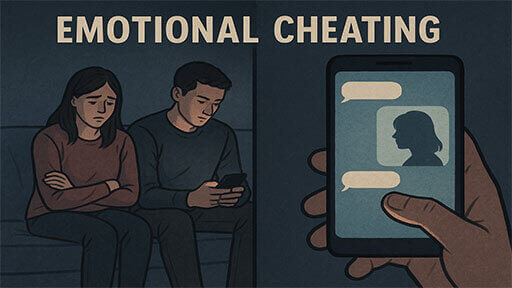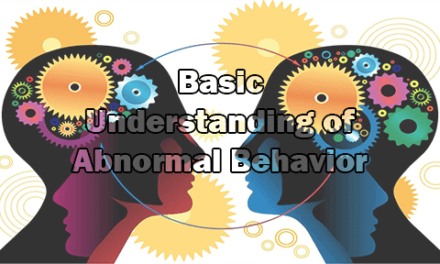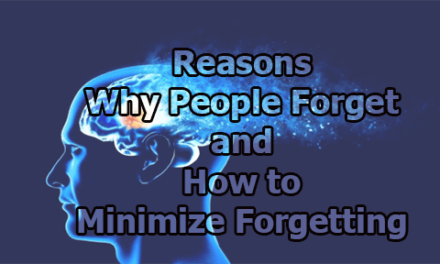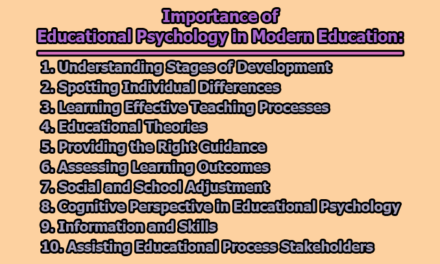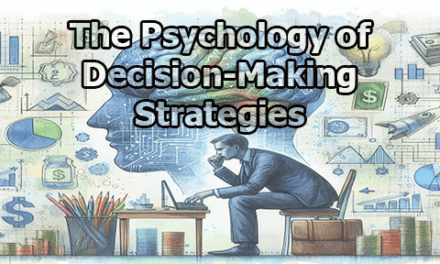Emotional Cheating:
Cheating is often imagined in purely physical terms, yet many relationships are shaken not by what happens in bed, but by what happens in the heart. Sharing your deepest thoughts, vulnerabilities, or emotional energy with someone outside your partnership can create a bond that feels just as threatening as a physical affair. This is what many refer to as emotional cheating—a form of infidelity that may not involve touch, but still undermines trust, intimacy, and security. While healthy friendships are important, the line between friendship and emotional betrayal can sometimes blur, leaving partners questioning where loyalty truly lies. In this article, we’ll take a closer look at what emotional cheating means, how it differs from genuine friendship, and why people find themselves drawn into emotional affairs in the first place.
What Is Emotional Cheating?
Emotional cheating, often called emotional infidelity, happens when one partner develops a deep emotional bond with someone outside of their committed relationship. Unlike a purely platonic friendship, this kind of attachment begins to threaten the trust, intimacy, and emotional closeness that should primarily exist within the couple’s bond.
What makes emotional cheating so complex is that it is far less clear-cut than sexual infidelity. While most people agree that sex outside of a relationship is cheating, emotional affairs live in a much grayer area. Every couple sets their own expectations and boundaries—what one partner sees as a harmless friendship might feel like betrayal to the other. This subjectivity is why conversations about emotional loyalty are often just as important as those about physical fidelity.
One of the clearest markers of emotional cheating is secrecy. When someone hides aspects of their relationship with another person—whether it’s the frequency of communication, the depth of conversations, or even the feelings involved—it suggests they recognize, at least unconsciously, that these interactions cross a boundary. Hiding or downplaying the relationship is often what makes it particularly damaging, as secrecy erodes trust.
Defining Emotional Cheating: To better understand what counts as emotional infidelity, Guitar et al. (2016) conducted a study with 379 participants who were asked to evaluate different definitions. Several stood out as the most accurate and relatable to people’s lived experiences:
“Emotional infidelity is being ‘in love’ or more dedicated emotionally to someone other than the partner or family; someone with romantic potential.”
“Emotional infidelity is when a person in a relationship creates an emotional distance by spending an excessive amount of time with, or thinking about, another person outside of the relationship, to the point that the other partner becomes ignored or rejected emotionally.”
“Showing a vulnerable side that should only be seen by your partner.”
These definitions highlight that emotional cheating is not just about spending time with someone else—it’s about the nature of the bond being formed. When attention, vulnerability, or affection that should be directed toward a partner is redirected to another person, the primary relationship often begins to suffer.
Emotional Cheating vs. Friendship:
The boundary between a close friendship and emotional cheating is not always easy to identify. Friendships are a natural and healthy part of life, yet when certain behaviors or dynamics shift, they can start to resemble emotional betrayal. What makes this distinction so challenging is that emotional connections often grow gradually, and it may not be clear when they begin to cross the line. Still, there are some important differences that can help us recognize whether a relationship is rooted in genuine friendship or edging into cheating territory.
- Intention: A friendship, by definition, does not carry romantic or sexual intentions. It is usually built on mutual support, shared interests, laughter, and companionship. Friends are people we turn to for encouragement and connection, but the bond does not threaten the intimacy of a romantic relationship. Emotional cheating, on the other hand, often begins when the friendship is used to meet needs that are not being fulfilled within the primary relationship. If a person begins to feel a sense of romantic attraction, or if they invest emotional energy that should belong to their partner into someone else, the relationship begins to shift away from friendship and toward infidelity. Even subtle elements of romantic interest—such as flirting, longing, or hoping for something “more”—signal that the connection is no longer just platonic.
- Secrecy: Another major distinction is secrecy. Healthy friendships are open, transparent, and usually welcomed by both partners in a relationship. If someone feels the need to conceal how often they talk to a particular friend, the topics of their conversations, or the depth of their feelings, it raises an important red flag. Hiding aspects of the relationship often indicates that the person knows, on some level, that they are crossing a boundary. People engaged in emotional affairs may downplay the closeness of the connection or avoid mentioning it altogether, creating a divide of dishonesty between themselves and their partner. In contrast, genuine friendships thrive in openness and do not require secrecy to survive.
- Intimate Emotional Behaviors: One of the clearest markers of emotional cheating is when the third party begins to take on an emotional role that should belong primarily to the partner. According to Kruger et al. (2015), many people perceive emotional infidelity as present when the outside person becomes more emotionally important than the committed partner. This can manifest in several ways: turning to the friend first during times of stress, sharing personal details or vulnerabilities that are not shared with the partner, or even seeking comfort and validation from them more than from the relationship itself. While it is normal and healthy to confide in friends, the balance matters—if the friend becomes the primary source of emotional intimacy, it can create distance and dissatisfaction within the committed bond.
Why Do People Cheat Emotionally?
The reasons people engage in emotional cheating are rarely simple. Human behavior is complex, and many of our choices stem from unresolved conflicts, unmet needs, and hidden insecurities. Often, individuals themselves may not fully understand why they are drawn toward someone outside their primary relationship until the bond has already deepened. Emotional affairs are usually not premeditated; rather, they begin subtly and progress over time, making them especially difficult to recognize in the early stages.
Research suggests that emotional infidelity often arises from dissatisfaction within the primary relationship, ongoing conflict, and a breakdown in communication (Rokach & Chan, 2023). What may begin as a casual conversation or lighthearted exchange with someone new can slowly grow into something more significant. The other person may seem to “get” you in ways your partner does not, offering empathy, attention, or laughter that feels refreshing. Over time, this dynamic can make the outside person feel just as important—if not more so—than the partner at home.
Common Relationship-Based Reasons: There are several reasons people turn toward emotional affairs, many of which are rooted in unmet needs within the relationship itself (Rokach & Chan, 2023):
- Lack of intimacy and affection: When people feel that their romantic relationship is emotionally distant, they may look elsewhere for closeness and warmth. Emotional affairs can fill the void created by a partner who seems unavailable or disconnected.
- Desire for validation and excitement: Many people crave to feel valued, seen, or admired. If that validation is missing in their relationship, the attention of another person can feel intoxicating.
- Feelings of neglect or mistreatment: When someone feels unappreciated, criticized, or dismissed by their partner, they may seek care, understanding, and affirmation from someone else.
- Low commitment to the relationship: If a person is not strongly committed to their partner, they may be more likely to cross emotional boundaries and invest their energy elsewhere.
- Anger or resentment: Emotional cheating is sometimes fueled by negative feelings toward a partner. In these cases, people may use the outside relationship as a way to express their frustration or even to “get back” at their partner.
- Seeking novelty or variety: Just as some people pursue new experiences in other areas of life, they may also crave variety in their emotional or romantic connections.
- Situational pressures: Stressful life events—such as grief, work burnout, or personal crises—can impair judgment. During these vulnerable times, individuals may be more likely to lean on someone outside their relationship in ways that cross emotional boundaries.
Personal Factors: Beyond relationship dynamics, personal history and individual traits also play a significant role in the likelihood of emotional infidelity. Research has identified several factors positively associated with infidelity (Rokach & Chan, 2023):
- History of infidelity: Individuals who have cheated in the past are more likely to do so again, including engaging in emotional affairs.
- Psychological distress: Anxiety, depression, or emotional turmoil can increase susceptibility to outside connections that feel soothing or affirming.
- Insecure attachment style: People with anxious or avoidant attachment patterns may struggle to feel secure in their relationships and seek reassurance elsewhere.
- Family background: Growing up in an environment where infidelity was present can normalize or increase tolerance toward cheating behaviors.
- Personality traits such as neuroticism: High levels of emotional instability, mood swings, or anxiety make some individuals more prone to seek comfort in ways that put their relationships at risk.
Taken together, these reasons highlight that emotional cheating does not happen in a vacuum. It often reflects both the challenges within a relationship and the inner struggles of the individual. While not always intentional, emotional infidelity can cause deep wounds, making awareness and honest communication vital in preventing it.
In conclusion, emotional cheating may not involve physical intimacy, but its impact can be just as damaging. By redirecting trust, affection, and vulnerability to someone outside the relationship, it undermines the foundation of closeness and security that partners rely on. Friendships are healthy and necessary, but when secrecy, romantic interest, or unmet needs come into play, the line between friendship and betrayal becomes clear. Recognizing these boundaries is essential—not only to protect your relationship but also to foster honest communication, trust, and genuine emotional intimacy with your partner.
Frequently Asked Questions (FAQs):
Is emotional cheating as harmful as physical cheating?
Yes, emotional infidelity can be just as damaging as sexual infidelity. While it doesn’t involve physical contact, investing your emotional energy in someone else erodes trust and connection. Many people report that emotional cheating hurts even more than physical betrayal because it creates distance and emotional abandonment in the relationship.
Can you emotionally cheat without realizing it?
In some cases, yes. Emotional cheating often begins with innocent conversations or harmless fun. Over time, those interactions may deepen into a bond where the other person feels more important than your partner. You might not call it “cheating” at first, but once secrecy, guilt, or romantic undertones appear, it usually means you’ve crossed a boundary.
What are the warning signs of emotional cheating?
Some common red flags include spending excessive time texting or calling one particular person, hiding or deleting messages, feeling excited to share news with them before telling your partner, or turning to them for comfort instead of your partner. If the thought of your partner knowing the full extent of the relationship makes you uneasy, that’s often a strong indicator.
How is emotional cheating different from friendship?
Friendships are healthy and important in any relationship. The difference is intention and transparency. A genuine friendship is open, supportive, and does not threaten your bond with your partner. Emotional cheating often involves secrecy, romantic or sexual tension, and shifting emotional energy away from your relationship.
Why do people have emotional affairs?
Emotional affairs often develop when needs within a relationship aren’t being met—such as intimacy, attention, or validation. Stress, loneliness, unresolved conflict, or lack of communication can all make someone more vulnerable to forming an outside attachment. Personal factors, like insecure attachment styles or past infidelity, can also play a role.
Can a relationship survive emotional cheating?
Yes, many couples do rebuild after emotional infidelity, but it takes honesty, commitment, and effort from both partners. Acknowledging the hurt, re-establishing open communication, and possibly seeking therapy can help. The most important step is addressing the underlying issues that led to the emotional distance in the first place.
How can I prevent emotional cheating in my relationship?
Prevention starts with strong communication and emotional openness. Share your vulnerabilities and daily experiences with your partner, set clear boundaries with outside friendships, and check in with each other about how connected you feel. Nurturing intimacy and trust reduces the likelihood of looking for emotional fulfillment elsewhere.
References:
- Guitar, A. E., Geher, G., Kruger, D. J., Garcia, J. R., Fisher, M. L., & Fitzgerald, C. J. (2016). Defining and distinguishing sexual and emotional infidelity. Current Psychology, 36(3), 433–446.
- Kruger, D. J., Fisher, M. L., Fitzgerald, C. J., Garcia, J. R., Geher, G., & Guitar, A. E. (2015). Sexual and emotional aspects are distinct components of infidelity and unique predictors of anticipated distress. Evolutionary Psychological Science, 1(1), 44–51. https://doi.org/10.1007/s40806-015-0010-z
- Rokach, A., & Chan, S. H. (2023). Love and infidelity: Causes and consequences. International Journal of Environmental Research and Public Health, 20(5), 3904. https://doi.org/10.3390/ijerph20053904

Library Lecturer at Nurul Amin Degree College

